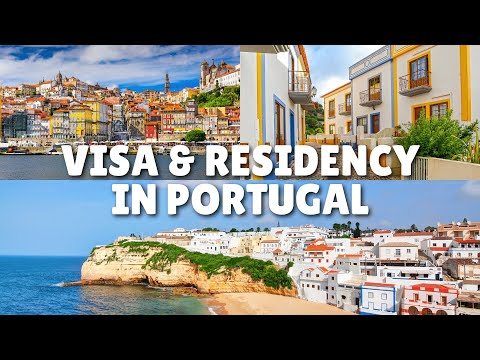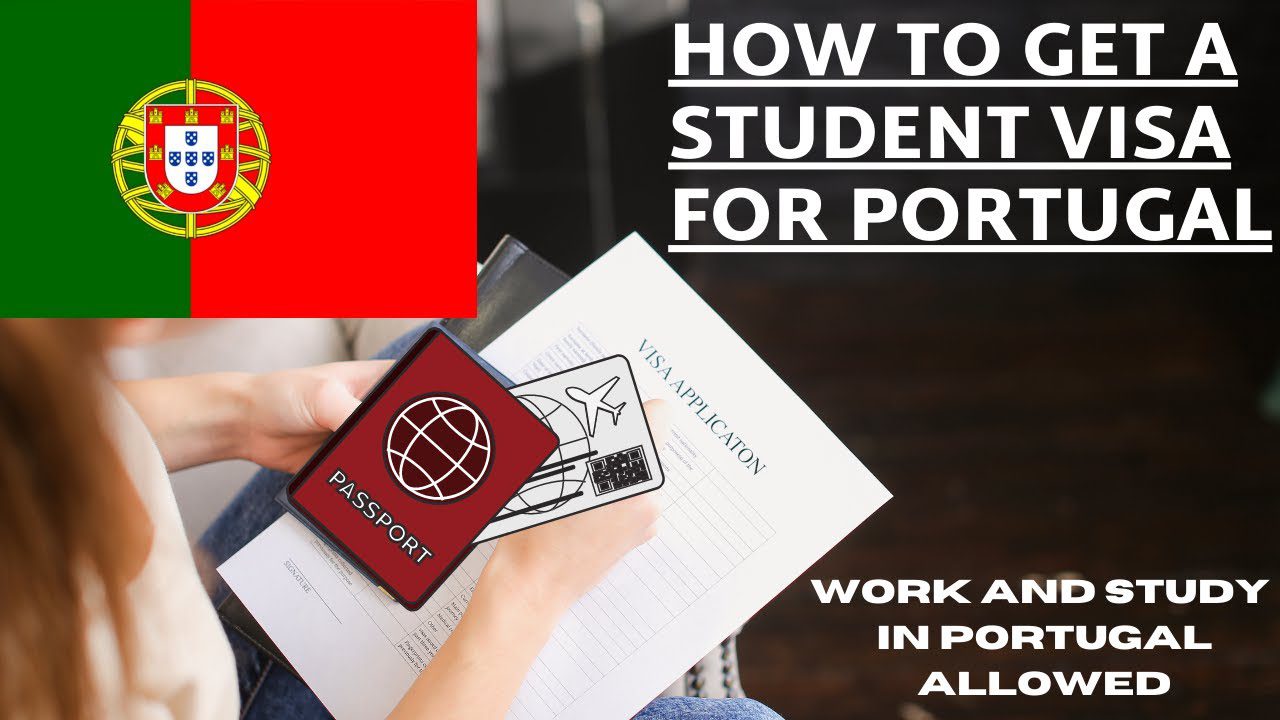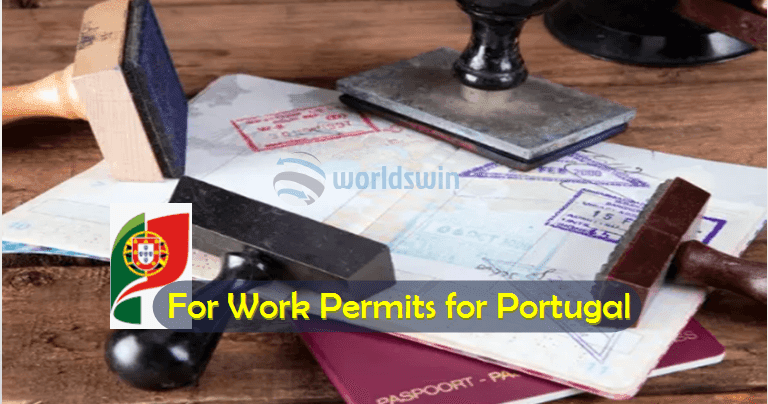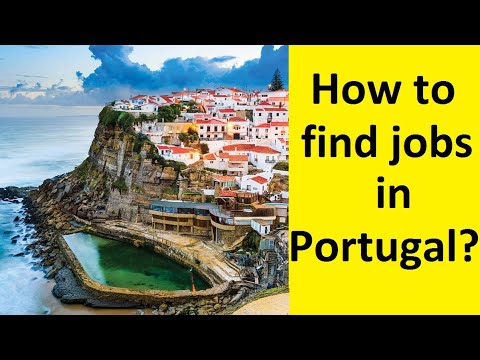Who needs a Portuguese visa? This guide to immigration in Portugal covers all the things you need to know, from visa types to residency. If you’re moving to Portugal, you’ll need to find out whether you will need a visa or residence permit to stay in the country. Immigration rules differ depending on your nationality, the purpose of your stay, and your intended length of time in Portugal. This guide to immigration in Portugal covers the following topics:
- Immigration in Portugal
- Who needs a Portuguese visa?
- Types of Portuguese visa
- Short Stay Portuguese visas
- Temporary Stay Portuguese visas
- Long Stay Portuguese visas
- Residency and citizenship in Portugal
- Arriving in Portugal
Immigration in Portugal
With a warm climate, good food, and high-quality services, Portugal is a popular place for relocating ex-pats. Just over 662,000 of its population are foreign-born, accounting for around 6.5% of the total population. Most ex-pats live in bigger cities such as Lisbon, Faro, Setúbal, and Porto. Brazil, a former Portuguese colony, has the largest ex-pat population. You will also find many Chinese and Europeans, particularly from the UK, Ukraine, and France.
The Portuguese immigration system is similar to that of many other EU member states. EU citizens have freedom of movement and Portugal is part of the Schengen Area. However, non-EU nationals can move to Portugal to work, study, join family, or retire if they meet certain criteria. There is also a Golden Visa program, which aims to attract foreigners with money to invest in the country.
According to its UN migration governance profile, Portugal allows good access to residency, welfare, and education services although it is lacking in some areas such as political rights, for example, foreign residents can’t vote in local elections. The Portuguese Immigration and Borders Service (SEF – Service de Estrangeiros e Fronteiras) is in charge of Portugal immigration.
Who Needs a Portuguese Visa?
Like many other EU countries, Portugal has a two-tier immigration and visa system. Rules depend on whether you are an EU/EFTA citizen or a third-country national.
EU/EFTA Nationals:
Portugal is a European Union member state and grants visa-free entry to all EU/EFTA citizens, as well as certain family members and relatives even if they are not from the EU themselves. EU nationals can enter the country for three months to find a job or set up a business. Once hired, EU nationals have the same rights as Portuguese workers.
Portugal is also part of the Schengen Area, which is made up of 26 European countries with no border controls between them. Citizens of Schengen countries can travel freely between one country and another without a passport. Additionally, they only need an identification document to enter Portugal.
While EU/EFTA citizens have the right to freely move to Portugal, they must request a registration certificate if they stay for longer than three months. EU citizens can also request a permanent residence certificate after five years.
Non-EU/EFTA Nationals:
Non-EU/EFTA nationals staying in Portugal for less than three months will need a visa unless their country has an agreement with Portugal. Currently, 61 countries have agreements in place that mean their citizens don’t need a visa for short stays. These include Australia, Canada, Japan, the United Kingdom, and the United States. See individual country details here.
Non-EU/EFTA nationals who wish to stay longer than three months, however, will need to apply for a long-term national visa before entering Portugal and a Portuguese residence permit after arrival. This includes UK citizens since the implementation of Brexit.
Types of Portuguese Visa
There are three categories of Portuguese visas:
- Short Stay visas, also known as Schengen visas, are for stays of up to 90 days.
- Temporary Stay National visas, which are for stays of up to one year.
- Long Stay National visas, also known as Residency visas, a stay of over one year.
Short Stay Portuguese Visas:
The Short Stay visa, or Schengen Visa, is for stays of up to a maximum of 90 days in any 180 days. It can be granted for purposes of tourism, family visits, business, temporary work, airport transit, or other stays in Portugal of a temporary or seasonal nature. The Schengen Visa allows you to travel around the Schengen Area countries for the duration of the visa.
You should make a Schengen Visa application at the Portuguese embassy or consulate in your home country no more than six months and no later than 15 days before your trip to Portugal. You can find information on Portuguese embassies and consulates worldwide here.
Would You Like To Apply For This Jobs/Sponsorship?
Enter Your Email Address HERE & You Will Receive a Notification About Your Application. If it shows "Subscribed" CLICK HERE to follow on Telegram for updatesThe general fee for Schengen short-stay visas is €80. Children aged between 6 and 12 pay a reduced fee of €40. You may have to pay an additional service fee in some countries which in most cases should be no more than half of the standard visa cost. In other words, the service fee is a maximum of €40 (or €20 for children aged 6–12).
Nationals of countries with whom the EU has Visa Facilitation Agreements pay a reduced fee of €35. These are Albania, Armenia, Azerbaijan, Bosnia, Georgia, Macedonia, Moldova, Montenegro, Russia, Serbia, and Ukraine. The following are exempt from Schengen Visa fees:
- Children aged under six
- Students, postgraduates and teachers who are travelling for educational or training purposes
- Researchers travelling for scientific purposes
- Representatives of non-profit organizations aged under 25 participating in events organized by non-profit organizations
- Family members of EU/EFTA nationals
Everyone who needs a Schengen short-stay visa needs to fill in an application form. Below is a breakdown of the different types of Schengen Visa.
General Short Stay Visa
This is a 90-day visa for general purposes such as tourism, family visits, and short-term work or business. You will need to submit the following along with your application form:
- Valid ID such as passport
- Passport photo
- Proof of health insurance
- Proof that you can financially support yourself for the duration of your stay
- Return ticket reservation
- Details of where you will be staying, for example, hotel reservation
- Evidence of the nature of your visit if applicable, for example, business
- conference details or proof of family members living in Portugal.
Seasonal Work Visa
This is a visa for work of a specific seasonal nature in one of the following sectors:
- Agriculture, forestry, hunting, or fishing
- Hospitality
- Food, liquor or tobacco industries
- Retail
- Construction
- Land transport
You will need to provide the following along with your application form:
- Valid ID
- Passport photo
- Valid health insurance
- Proof that you can financially support yourself for the duration of your stay
- Return ticket reservation
- Work contract or work offer for seasonal work with a Portuguese employer
- Compliance with national legal requirements in the case of regulated professions
- Accommodation details
Airport Transit Visa
This is granted to allow transit within the international area of an airport, from one flight to another, without entering the Schengen area. This visa is mandatory for all passengers that change flights in a Schengen country airport unless they are exempt from requiring an entry Portuguese visa. You will need to submit the following along with your application form:
- Valid ID
- Passport photo
- Entry visa for the destination country, if applicable
- Proof of means of subsistence for the duration of your stay in the destination country (bank statements, work contract, etc.)
- Return ticket reservation
Temporary Stay Portuguese Visas
Temporary Stay visas are Portuguese national visas that allow you to stay in Portugal for up to one year. The visa allows multiple entries, meaning that you can leave the country for short periods.
All third-country nationals staying in Portugal for more than 90 days and less than a year need a Temporary Stay visa, except family members (spouse, dependent children, adopted children, parents, or dependent minor siblings) of Portuguese residents and other EU/EFTA nationals.
You should make your visa application at the Portuguese embassy or consulate in your home country. The deadline for Portugal immigration authorities to make decisions on temporary visa applications is 30 days before the travel date, however, you can make an application several months in advance. You can find the application form here. The fee for the Temporary Stay visa in Portugal is €75. The following are exempt from paying:
- Children aged under six
- Children who are descendent family members of Portuguese residents or
- EU/EFTA residents living in Portugal
- Those with a study scholarship granted by Portugal
- Highly qualified researchers carrying out research activity
- Patients and accompanying persons travelling under Cooperation Agreements in the Field of Health with Portugal
- General documentation requirements
You will need to provide the following for all Temporary Stay visas in Portugal, along with the completed application form:
- Passport or other valid ID
- Two passport photos
- Return travel ticket details
- Valid health insurance
- Access to criminal records by the Portugal immigration authorities
- Proof of accommodation
- Proof that you can support yourself financially for the duration of your stay
Below is specific information on the different types of Temporary Stay Portuguese visas.
Temporary Work Visa:
For any employment in Portugal lasting between 90 days and one year. The Portuguese work visa can be for purposes such as long-term seasonal work, self-employed or freelance work, scientific or academic work, amateur sports activity, or any other skilled work. Additional documentation required includes:
- Work contract or service agreement
- Letter from academic or research institution detailing the nature of work, if a visa is to carry out scientific or academic research
- Compliance with national legal requirements in the case of regulated professions
- Document issued by sports federation or association, if a visa is for amateur sports purposes
Study Visa
For any study in Portugal lasting between 90 days and one year. This includes secondary, graduate, or postgraduate education. In addition to general documentation, you will need to provide confirmation that you have been accepted onto a study course at an accredited Portuguese educational institution along with proof that the course lasts no longer than one year.
Professional Training, Internship or Volunteering Visa
Temporary visa for any form of professional training, unpaid internship, or volunteering for a charity or NGO based in Portugal. In addition to the general documentation, you will need to submit the necessary proof that you are undertaking these activities for a period of between 3-12 months, for example, details of training courses or a letter from the organization that you will be carrying out your placement with.
Medical Treatment Visa
This can be for your medical treatment within the Portuguese health service, or to accompany a family member undergoing health treatment. You will need to provide:
- Medical report for the person undergoing treatment, for example from a doctor or specialist in the patient’s home country
- Proof of treatment to be performed by medical service in Portugal
- Proof of relationship in cases of accompanying family members
Youth Mobility Visa
This is a visa available to people from nine countries that allows stays of up to 12 months for purposes such as study, training, internships volunteering, and cultural exchange. Available for individuals aged 18 to 30 (upper age limit increased to 35 for Canada, 31 for Australia and Peru, no upper age limit for the US). The exact conditions and criteria vary between individual countries. Many agreements stipulate that participants can do a maximum of six months of paid work.
Self Support Visa
Portuguese visa for either working-age or retired individuals who can prove that they can support themselves financially for a 12-month stay in Portugal. You will need to provide evidence such as bank statements or proof of savings. However, this visa is normally only granted in exceptional circumstances and you will usually have to give details for your reason for wanting to live in Portugal for a temporary period.
Religious Purposes Visa
For religious training or studies with a recognized institution or congregation. You will need to provide proof of activity, such as a letter from the religious organization.
Long Stay Portuguese Visas
Also known as the Residency Visa, this is a Portuguese national visa for stays longer than one year. With this visa, you will need to apply for a Portuguese residency permit from the Portugal Immigration Service (SEF).
Information on who needs this visa and where to apply is the same as for the Temporary Stay visa. The application form is also the same. However, the deadline for making an application is different (60 days rather than 30 days) and the cost is more expensive (€90). The exemption categories are the same as for the Temporary Stay visa.
General Documentation Requirements
For all Portuguese residency visa applications, you will need to provide (along with the completed application form):
- Passport or valid ID
- Two passport photos
- Proof of medical insurance
- Access to criminal records by the Portugal immigration authorities
- Proof of accommodation
- Proof that you can support yourself financially for the duration of your stay
Below is additional information on the specific types of Portuguese long-stay residence visas.
Work Visa
This is for any long-term or permanent work placement that is for a period longer than one year. Additional documentation you need to provide includes:
- Work contract or service agreement
- Letter from academic or research institution detailing the nature of work, if a visa is to carry out scientific or academic research
- Compliance with national legal requirements in the case of regulated professions
- Document issued by sports federation or association, if a visa is for amateur sports purposes
Study Visa
This is granted for a period of study that lasts longer than a year at all educational levels from secondary school upwards. You will need to provide proof of acceptance onto a course or into the school, such as a formal letter from an accredited institution. For higher-level academic courses, you may also need to show evidence that you meet the admissions criteria.
Professional Training, Internship or Volunteering Visa
Long-stay visa for any form of professional training, unpaid internship or volunteering for a charity or NGO based in Portugal that lasts for longer than 12 months. In addition to general requirements, you will need to provide full details of your placement including a letter of acceptance and the duration of the program.
Family Reunion Visa
Family members of non-EU/EFTA residents in Portugal will need to apply for a family reunion visa if they are also from outside the EU. This visa is available for the following relatives:
- Spouses and legally recognized partners
- Dependent children, including adopted children and children of the spouse/partner
- Dependent parents, including parents of the spouse
- Any dependent minor siblings
You will need to provide:
- Notification of family reunion authorization by the Portugal Immigration Service (SEF)
- Proof of family relationships, such as marriage or birth certificate
Retirement Visa
The Long Stay visa is for anyone who can support themselves financially long-term without working or using Portuguese welfare services. This can be people of working or retirement age, or people taking up long-term religious placements where accommodation is provided.
To get this visa, you will need to show evidence of earnings or savings which demonstrate that you can support yourself long-term in Portugal. For long-term religious stays, you will need to provide a letter or certificate from the religious organization or congregation.
Golden Visa Scheme
This is a special Portuguese visa program that is designed to attract foreign investment into Portugal. The Portuguese golden visa scheme speeds up the process for foreign investors from non-EU countries if they buy Portuguese real estate or invest up to a certain value. Provided they meet the conditions, under this scheme non-EU citizens will receive a Portuguese residence permit and can later apply for full Portuguese citizenship.
Residency and Citizenship in Portugal
Anyone travelling to Portugal from outside the EU/EFTA and staying for longer than three months will need to apply for a residence permit from the SEF. Initial Portuguese residence permits are temporary permits valid for one year but renewable. EU/EFTA citizens staying for longer than three months don’t need a residence permit but do need to register with the SEF.
After five continuous years of living in Portugal, you can apply for permanent residence in Portugal. You can also apply for Portuguese citizenship after five years. Citizenship applications can be made earlier in certain circumstances, for example, if you are married to a Portuguese citizen.
Arriving in Portugal
You won’t need to register your stay in Portugal if you are in the country for less than three months. However, you will need to apply for either a Registration Certificate (if from EU/EFTA) or a residence permit (if from outside the EU/EFTA) from the SEF within four months of your arrival if you stay longer than 90 days. Other things to consider once arriving to live in Portugal are:
Would You Like To Apply For This Jobs/Sponsorship?
Enter Your Email Address HERE & You Will Receive a Notification About Your Application. If it shows "Subscribed" CLICK HERE to follow on Telegram for updates- Registering for Portuguese healthcare
- Opening a Portuguese bank account
- Applying for a NIF number
- Setting up utilities and telecommunications accounts






